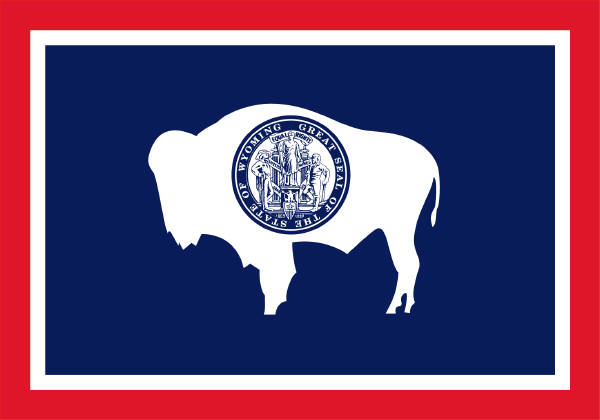 By Brad Cave
By Brad Cave
The Wyoming Legislature convened its general session on January 10, 2017. A bunch of interesting employment-related measures have been filed for the Legislature’s consideration. Some make good sense; others not so much. Employers can follow the progress of these proposals through the Legislature’s website at legisweb.state.wy.us, and we will update you as the session progresses.
Unemployment and Workers Compensation
House Bill 71 would permit the Unemployment Insurance Division to establish an Internet-based communication system to transmit determinations, decisions or notices when the claimant or the employer agree to receive those documents through the system. The bill would establish rules for determining when documents are delivered using such a system and acknowledgement of delivery under the system. No action has been taken on this proposal.
House Bill 84 would authorize the Department to enter into installment payment agreements with employers who are delinquent on the payment of workers compensation premiums, lowers the interest rate on delinquencies to 1%, and gives the Department some discretion on whether to sue or shut down an employer who is delinquent in paying premiums. The House Labor, Health and Social Services Committee unanimously adopted a “do pass” recommendation for this bill.
Similarly, House Bill 85 authorizes the Department of Workforce Services to enter into agreements with employers for the repayment of delinquent unemployment contributions of up to twelve months in duration. The bill would also reduce the interest rate for delinquent contributions from 2% to 1%. This bill has been referred to the House Labor, Health and Social Services Committee for consideration, but no action has been taken by the committee.
Senate File 101 would exempt seasonal employment from unemployment benefits and premiums. The measure would define seasonal employment as employment limited to 20 weeks in any 12 month period, and exclude seasonal employment and wages earned from such employment from unemployment insurance purposes. This proposal has been referred to the Senate Labor, Health and Social Services Committee.
Wages
In 2015, the Legislature changed Wyoming law to permit employers to make final wage payments to employees on the employer’s regular payroll schedule, regardless of the reason for termination. House Bill 92 amends that schedule to require employers to comply with any time specified under a collective bargaining agreement between the employer and its employees’ union. The bill passed the House without opposition, and is presently awaiting action by the Senate.
House Bill 140 is a perennial offering to raise the minimum wage. The amount of the proposed increase has changed from year to year. This year’s bill calls for a minimum wage of not less than $9.50 per hour, and a training wage for the first six month’s of employment of $7.50. Under the measure, tipped employees would receive a minimum wage of $5.50, not considering tips, and at least $9.50 per hour with tips. Tipped employees would also be able to file a claim for three times the amount the employer owes if the employer fails to make up the difference between the general minimum wage and the tipped employee minimum wage, when the employee’s tips do not cover the difference. The bill is awaiting action by the House Labor, Health and Social Services Committee.
House Bill 209 would require the Department of Workforce Services to update a 2002 study about gender wage disparity in Wyoming. The bill would require the study to analyze disparities on the basis of county and occupation, and to opine on the causes, impacts, solutions and benefits of resolving any such disparities. This proposal has been introduced, but no action or committee assignment has been made.
Veterans, Military Service and Military and Veterans Spouses
The Joint Transportation, Highways and Military Affairs Interim Committee proposed a trio of veterans’ preference measures:
Senate File 53 would require that all public employers, and all private employers hiring for public works projects, give veterans a “preference prior to the interview process.” The measure would amend current law to direct that, if a public employer uses a numerical scoring system for applicants, veterans shall be granted a 5% advantage over any nonveteran, and, if the veteran has a service-connected disability, a 10% advantage. If no scoring system is used, a qualified veteran shall be given preference over any equally qualified nonveteran candidate. This file would define veteran as any honorably discharged service member or a serving spouse of any deceased service member. After several attempts to amend the proposal, it passed the Senate by a large majority and is awaiting action in the House.
Senate File 54 would create a preference for the hiring of military spouses by all public entities and private employers with contracts on public works projects. A military-spouse applicant would be preferred for appointment if the applicant possesses the business capacity, competency, education or other qualifications for the position. If a public entity uses a numeric scoring system, the military spouse shall be allowed a 5% advantage over any competitor-applicant. If no numeric scoring system is used for a position with a public entity, the military spouse shall be given preference over equally qualified candidates. This file passed the Senate by a narrow five-vote majority, and is waiting for consideration by the House.
Senate File 55 would have amended the Wyoming Fair Employment Practices Act to prohibit discrimination against an applicant or employee because that person is a military spouse. A military spouse is an individual married to an active uniformed military member or member of the national guard or any guard reserve or auxiliary component. The Senate defeated this measure by a vote of 11 to 19.
Finally, House Bill 101 would permit, but not require, school district boards to create a hiring preference for veterans and surviving spouses of veterans. This bill would also clarify that the current law requiring veterans’ preferences does not apply to school districts. The House Education Committee gave this bill a unanimous “do pass” recommendation, and it is working its way through the process on the House floor.
Franchisor Protection
Senate File 94 appears to be a reaction to the National Labor Relations Board’s efforts to treat the employees of franchisees, most notably the employees of various McDonald’s franchisees around the country, as employees of the franchiser corporation. The measure declares that franchisee employees could not be deemed an employee of a franchiser for any purpose under Title 27 of the Wyoming Statutes, which would include unemployment, workers’ compensation, fair employment, and the wage payment statutes. The measure has been assigned to the Senate Corporations Committee for consideration.
Waiver of Governmental Immunity for Health Care Whistleblower Claims
Wyoming law currently prohibits discrimination against employees of licensed health care providers who report any violation of state or federal law to the Wyoming Department of Health. However, most hospitals in Wyoming are operated by governmental entities which are immune from liability under the Wyoming Governmental Claims Act for any claim unless the claim is specified as an exception under that Act. House Bill 142 would amend the Governmental Claims Act to create an exception for discrimination against whistleblowers who are employed by public hospitals. This bill passed the House with a strong majority, and is waiting for action in the Senate.
Early Retirement for State Employees
Senate File 95 would create a one-time early retirement program for eligible state employees. The program will apply only to employees who elect to accept the benefit between April 1 through June 30, 2017. Eligible employees would be defined as those between 52 and 55 years of age, with 15 to 18 years of services, such that their age and years of service total at least 70. Eligible employees who accept the offer will receive an enhanced monthly retirement benefit until age 65, and other insurance related benefits. The measure would also restrict the ability of the various state agencies to fill any position vacated by an eligible employee who accepts the early retirement benefit. The measure is currently waiting for consideration by the Senate Revenue Committee.
Resistance to Federal Workplace Safety Regulations
House Bill 70 is an effort to resist efforts by the United States Occupational Safety and Health Administration (OSHA) to regulate in certain areas. The measure contends that OSHA has “expanded its regulations of highly hazardous chemicals on questionable authority.” This measure would authorize the Governor and the Attorney General to defend the interests of Wyoming citizens against regulations proposed by federal OSHA in areas of “questionable” federal authority. The measure does not specify those areas. The House passed this bill with a strong majority, and it is waiting for consideration in the Senate.
Civil Rights
House Bill 135 would create the Government Nondiscrimination Act, which would prohibit any government employer from discriminating against any person because the person believes or acts based on a religious belief or moral conviction that marriage is a union of one man and one woman, and that gender is a person’s biological sex as determined by anatomy and genetics at the time of birth. The measure would have far-reaching implications in various areas of state law beyond employment protections, and would also prohibit any employment-related actions for those prohibited reasons. The measure would create a legal claim for violation of the statute, with broad remedies including compensatory damages, and would eliminate the immunity of governmental entities for violations of the proposed statute. This bill has been referred to the House Judiciary Committee for consideration.
Joint Resolution SJ0001 has been proposed to create an individual right of privacy in the Wyoming Constitution. The amendment would read that the “right of individual privacy . . . shall not be infringed without the showing of a compelling state interest.” The resolution does not explain how the amendment would apply to the relationship between governmental entities and their employees with respect to internal investigations, drug testing or other aspects of the public employment relationship. This resolution was received for introduction in the Senate, but no action has been taken on it since introduction.
Joint Resolution SJ004 has been proposed before the Senate to put a resolution before Wyoming voters to amend the Wyoming Constitution. The constitutional amendment would prohibit discrimination or preferences in public employment, contracting, education and a variety of other public services and activities on the basis of race, sex, color, ethnicity or national origin. The amendment would apply to all public entities. This resolution was received for introduction in the Senate, but no action has been taken on it since introduction.
Bottom Line
We encourage Wyoming employers to keep tabs on these bills, and contact your Senator or Representative if these impact your organization or industry. The legislative session adjourns in early March, so additional measures may be introduced. We will continue to update you as the session continues over the next month.

















 By
By  By
By